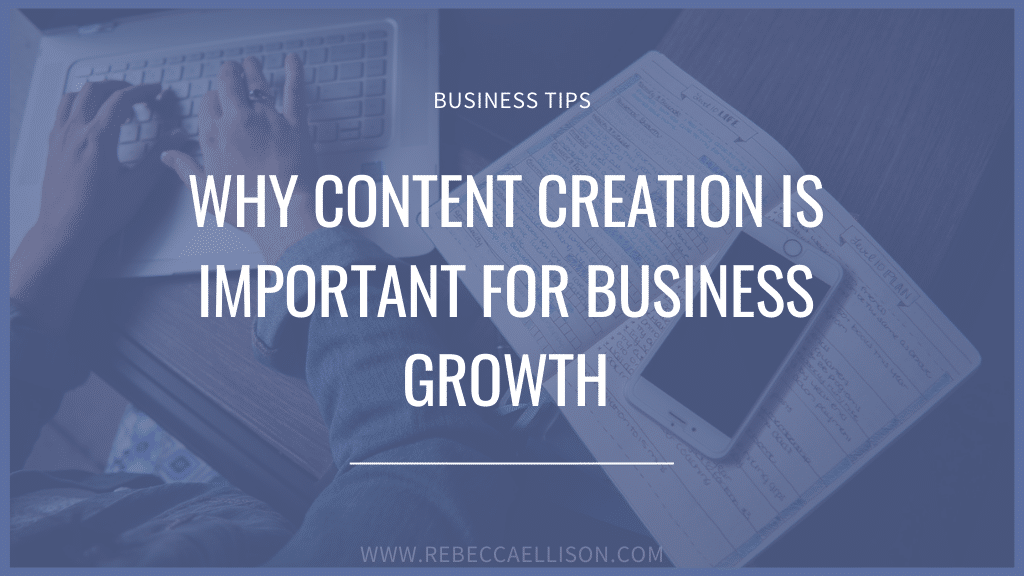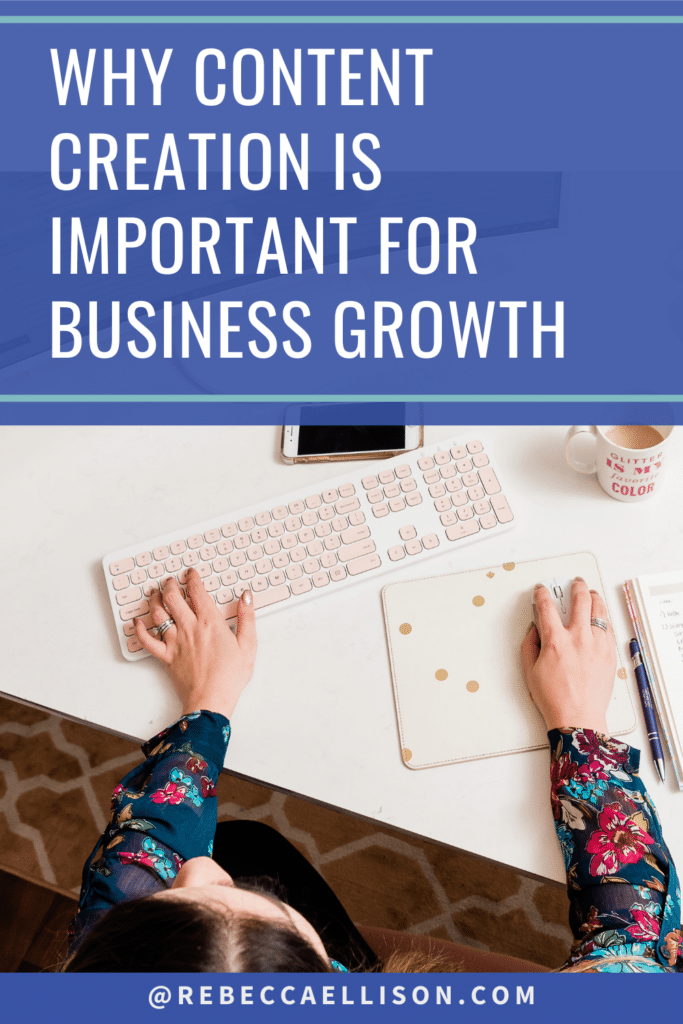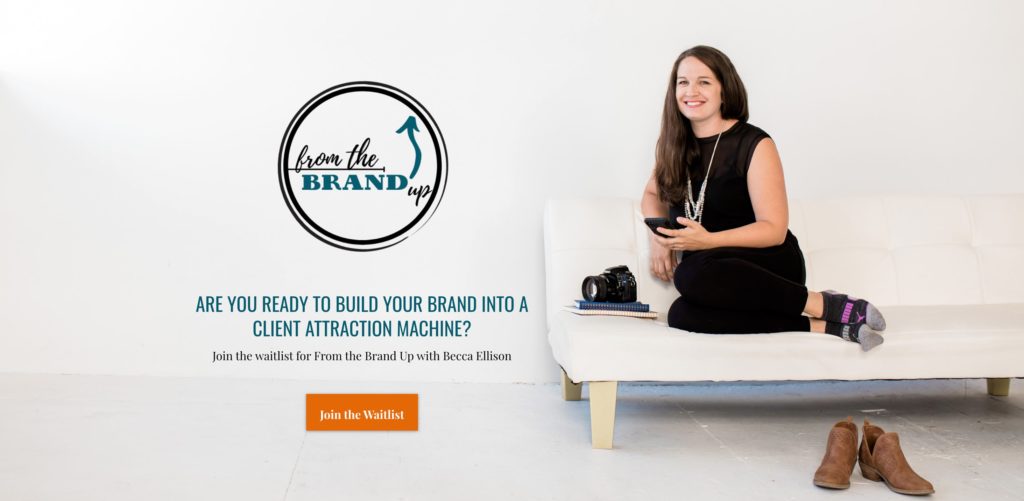
There are many ways of marketing your business in today’s market. And the most buzzed-about one, especially now that we are 18 months into a pandemic that has forced everyone to physically distance and move online, is content creation.
But what content should you be creating? And how do you know what will actually work?

You may be wondering: as a service-based business, do you need to be creating content for your business? The short answer to that is yes.
We live in “the information age” right? This means that all of us can find answers to our questions just by pulling out our phones and asking. Prior to smartphones and the internet, people relied on referrals and big companies to help them make decisions. Outside of that, there was limited knowledge available. People didn’t know what was right, so they trusted the big companies that they were always seeing on TV and hearing on radio ads.
Content wasn’t needed because the information was limited to the “haves” and the “have-nots.”
But now, you can ask the most obscure question and Google will give you thousands of results in a 3 second period. Which has trained us all to go to Google and search when we have a problem that we need to fix.
Maybe we don’t know what the fix will be yet, but we definitely know what our problem is and we are going to ask Google how to fix it. This is why creating consistent content is critical to your business.
Because your potential clients are searching for their answers. Who do you think they are more likely going to buy from? The business who answered their question, and some more questions they didn’t realize they had? Or the one who shows up saying “buy my stuff” or “trust me because I say it’s a good idea.”
The rule of reciprocity in psychology shows that people respond to positive action towards them, with another positive action. This builds relationships and trust, and gets people on board with your brand.
So, when you create content that answers your potential client’s questions, they, in turn, will automatically want to return the favor of kindness. Which often turns into hiring you.
What Content Should You Be Creating?

This is often an overlooked question, but it’s a very important one.
Too often, I see online businesses create content that is at their level. Not their customer’s level.
What does that mean? It means the business creates content that aligns with where their knowledge and interest is at. But if you do that, you will only succeed in attracting competitors. And unless you are selling to your competitors, this is a strategy that will lead to frustration.
Your content should be used to connect and inform your potential clients.
So it’s imperative that you know who your target market is, what their current problems and frustrations are, and create content with ways to answer their questions and address their problems. The content will seem basic to you, as the business owner. That’s okay.
You are the expert. Your customers need you for your expertise. If they knew what you know, they likely wouldn’t need to hire you! Makes sense right?
So brainstorm 5-10 ideas of ways to answer your customer’s questions.
What questions are they thinking of or needing an answer to that could lead them to your service?
A good content creation plan ensures you are there and seen as a great resource BEFORE they are looking to hire for your services. Because, once they are, you are the one they will trust to hire.
Where Should You Post Your Created Content?
This is another great question. There are so many different places you can post the content you’ve created.
The answer really depends on you and where your ideal client hangs out.
If you are going to take the time and energy to research, produce, and educate, then you want it to continue to work for you as time passes.
This means you need a blog.
Now you may be thinking, what about YouTube or a Podcast?? Well, yes, those are great options too, but where are you going to host your podcast’s show notes? Your blog.

What about your YouTube notes or recap so it’s found on your website? If someone is actively on your website, you don’t want them to rush off to the distraction center of YouTube and forget about you. You embed the video into your blog.
The benefit of having a blog is that you OWN that content. It can always be found by those who go directly to your website, and the more often you hop on the content creation train, the more often you will be found organically on Google.
You then take that content you’ve created for your blog and repurpose it to your social media channels.
The content you create on your blog can be repurposed in all of these ways:
If you have a YouTube channel, you create and post on YouTube. Then do a summary or dictation on your blog. If you have a Podcast, you post it on the Podcast platform. Then you write show notes or even a transcription on your blog. If you like writing or using photos for your content, then your blog is your initial content station.
From there you can repurpose that same content to:
- Facebook post
- Facebook LIVE
- Your Facebook group
- IGTV
- IGLive
- IG reel, post or carousel
- Linkedin post
- Linkedin article
- TicToc video
Then use a scheduling software to continue reposting and repurposing the content.
Don’t make the mistake of creating your content for social media, and social media alone. This is how you end up on a hamster wheel of content creation that leads to burnout.
Social media content has a very low lifecycle. Whereas a podcast, YouTube channel, or blog content will continue to serve you for years. I have blog posts from 5 years ago that send consistent traffic monthly to my website.
The average lifecycle of social media content on the other hand is:
Facebook: 6 hours
Instagram: 48 hours
Linkedin: 24 hours
Youtube: 20 days +
Twitter: 18 minutes
TikTok & Snapchat: 30 minutes unless viral
Pinterest: 4 months (Pinterest is more of a virtual search engine than a social media platform though, so that makes sense)
Blog post: Years

Content Creation Strategy
Now that you understand why content creation is important for the growth of your service-based business, I’m going to dive into your content creation strategy. That is a big enough topic to warrant its own post, though, so look back next week for that! (Once live, I will post the link here).
Content strategy comes easily when you understand exactly what your brand position is, as well as who you are helping and what they need.
All of these aspects are part of your brand foundation, which so many service-based businesses skip right over when starting. This is a huge mistake that makes attracting clients really hard. You can gain some traction with word-of-mouth recommendations, but then business stalls out. With a developed brand strategy, your content strategy becomes easy and apparent. You never end up wondering what to post about again because it’s all part of the bigger plan.
If you never did the work to really understand the brand you are creating and are ready to build and scale your business, this foundational work is key. I teach you exactly how to build your brand foundations, brand voice, and vibe, and brand strategy (including content!) in my group coaching program From the Brand Up. Specifically for online, service-based businesses in the creative and coaching industries.
Come and check it out here: From the Brand Up

For more tips for growing your business with branding and marketing, check out our latest posts:
The comments +